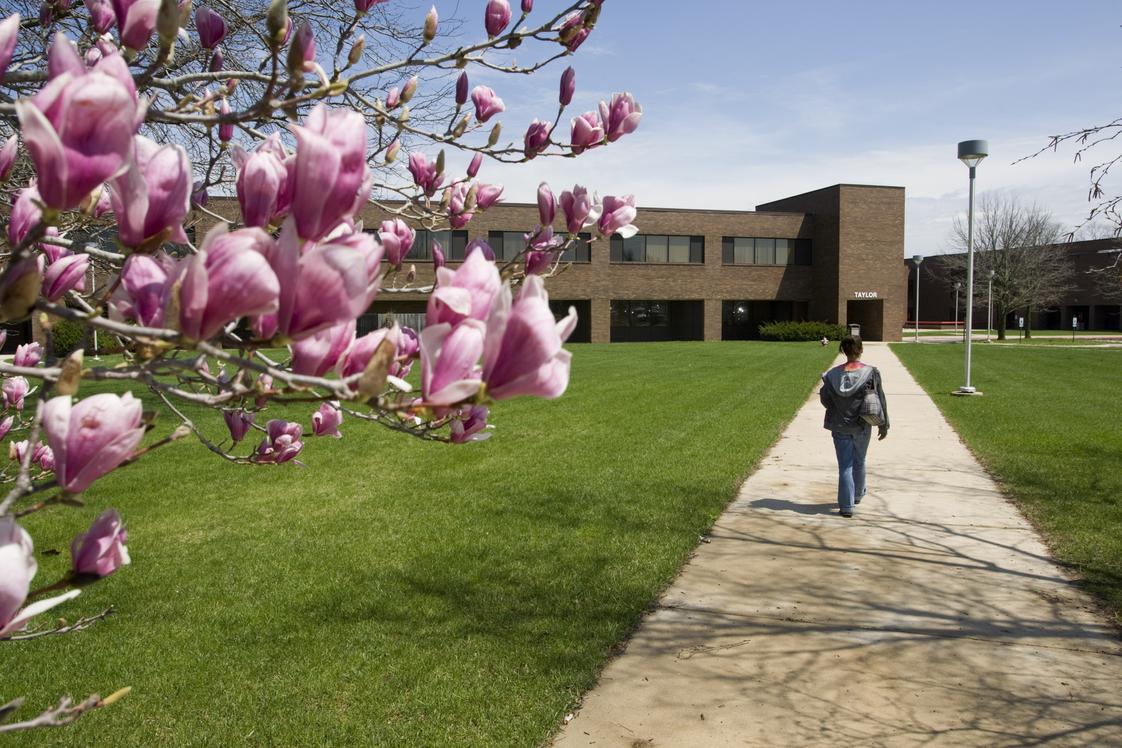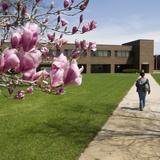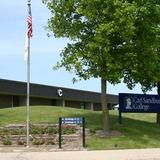- Spoon River College is a multi-faceted community college dedicated to providing students a quality education. Students have a variety of educational goals and SRC is positioned to meet the needs of all these students by providing: First two years of college and pre-professional, courses in 30 college majors, 30 career and technical programs, Continuing Education ,Business and Industry Training.
School Highlights
Spoon River College serves 1,726 students (26% of students are full-time).
The college's student-teacher ratio of 14:1 is lower than the state community college average of 21:1.
Minority enrollment is 14% of the student body (majority Black), which is less than the state average of 53%.
Quick Facts (2026)
- Enrollment: 1,726 students
- In-state tuition: $9,390
- Out-state tuition: $10,470
- Student-teacher ratio: 14:1
- Minority enrollment: 14%
- Source: Integrated Postsecondary Education Data System (IPEDS)
School Overview
The teacher population of 127 teachers has stayed relatively flat over five years.
Spoon River College
(IL) Community College Avg.
Carnegie Classification
Associate's Colleges: Mixed Transfer/Career & Technical-Mixed Traditional/Nontraditional
Associate's Colleges: Mixed Transfer/Career & Technical-High Nontraditional
Institution Level
At least 2 but less than 4 years
At least 2 but less than 4 years
Institution Control
Public
Public
Total Faculty
127 staff
239 staff
School Calendar
Student Body
The student population of Spoon River College has grown by 39% over five years.
The student-teacher ratio of 14:1 has decreased from 30:1 over five years.
The Spoon River College diversity score of 0.25 is less than the state average of 0.69. The school's diversity has grown by 22% over five years.
Total Enrollment
1,726 students
3,838 students
Student-Teacher Ratio
14:1
21:1
# Full-Time Students
453 students
1,091 students
# Part-Time Students
1,273 students
2,747 students
# Enrollment Undergraduate
172 students
328 students
# Full-Time Undergraduate Students
453 students
1,091 students
# Full-Time Graduate Students
n/a
43 students
# Part-Time Undergraduate Students
1,273 students
3,310 students
# Part-Time Graduate Students
n/a
18 students
Total Dormitory Capacity
n/a
132 students
% American Indian/Alaskan
n/a
n/a
% Asian
1%
6%
% Hispanic
4%
26%
% Black
6%
13%
% White
86%
47%
% Hawaiian
n/a
n/a
% Two or more races
2%
3%
% Non Resident races
n/a
1%
% Unknown races
n/a
4%
Diversity Score
0.25
0.69
College Completion Rate (Students who graduate in less than 4 years)
41%
40%
College Completion Rate (Students who graduate in 4 years or more than 4 years)
n/a
55%
Average Graduate Earnings (10 Years)
$30,900
$31,800
Tuition and Acceptance Rate
The public in-state tuition of $9,390 is more than the state average of $7,875. The in-state tuition has declined by 11% over four years.
The public out-state tuition of $10,470 is less than the state average of $10,847. The out-state tuition has declined by 10% over four years.
In-State Tuition Fees
$9,390
$7,875
Out-State Tuition Fees
$10,470
$10,847
Tuition Notes
$203.00 / semester hour (In District), $411.50 / semester hour (Out-of-District, In State), $450.00 / semester hour (Out-of-State & International), $210.00 / semester hour (Online)
% Students Receiving Some Financial Aid
88%
81%
Median Debt for Graduates
$4,827
$5,667
Median Debt for Dropouts
$2,851
$3,500
Acceptance Rate
n/a
89%
SAT Reading
n/a
390
SAT Math
n/a
360
SAT Writing
n/a
355
ACT Composite
n/a
17
ACT English
n/a
17
ACT Math
n/a
17
Sports
Total Sports Offered
2 sports
Sports
BaseballSoftball
Source: 2024 (or latest year available) Integrated Postsecondary Education Data System (IPEDS) , School Administrators
School Notes
- Spoon River College serves 4,000 credit students per year in a 1,566 square miles area including Fulton, McDonough, Mason, Schuyler and part of Knox counties. Spoon River College offers the personalized, quality learning environment that prepares you for success. Classes are small and the ability to work one-on-one with individual faculty members is a priority. As a result, you are well prepared for successful moves into four-year universities or the workforce. SRC boasts an average class size of 14, with each class taught by a highly qualified instructor...not a graduate assistant. Learning takes place in many locations, not just in the classroom. In addition to the Canton Campus, Macomb Campus, Havana Center and Rushville Center buildings, Spoon River College students prepare for success in real-life learning situations. Some of these areas include hospitals for nursing students, the large Vocational Technical building on the SRC Canton Campus, and child care facilities. Agriculture is taught in the classroom and in the field. Spoon River College also has an Arboretum on campus for the study of wildlife. In addition, computer labs are available at every campus. This includes comprehensive distance learning facilities at all locations. Students can take classes via television from these facilities. As a comprehensive community college, Spoon River College provides a wide-range of activities to round out the complete college experience. Some of the activities include varsity athletics, drama, literary magazine, Student Senate, Phi Theta Kappa Honors Society, Alpha Gamma Tau Agricultural Fraternity, and Phi Mu Tau Diesel Tractor Technology Fraternity. The main campus of SRC is located on a beautiful, wooded site comprised of 160 acres near the Cuba Blacktop on County Road 22 just four miles west of Canton. The site contains four conveniently connected buildings that house a student center, learning resource center, classrooms, laboratories, administrative offices, and a cafeteria. Adequate, free parking is provided in lots adjacent to the buildings. The campus also includes a natural arboretum, walking trail, and agricultural test plots.
Frequently Asked Questions
How much does Spoon River College cost?
Spoon River College's tuition is approximately $9,390 for In-State students and $10,470 for Out-State students.
What sports does Spoon River College offer?
Spoon River College offers 2 interscholastic sports: Baseball and Softball.
Recent Articles

Community College Policies and Financial Aid Guide 2026
A 2026 guide to community college policies and financial aid, including FAFSA updates, state aid, tuition rules, and smart planning tips.

Get Better Grades in Community College by Being Social (2026 Update)
Learn how being social in community college boosts grades, retention, and career success. Updated 2026 strategies for academic achievement.

Navigating Community College as an Adult Learner in 2026
A practical 2026 guide for adults returning to community college, covering admissions, financial aid, career planning, and flexible learning options.














